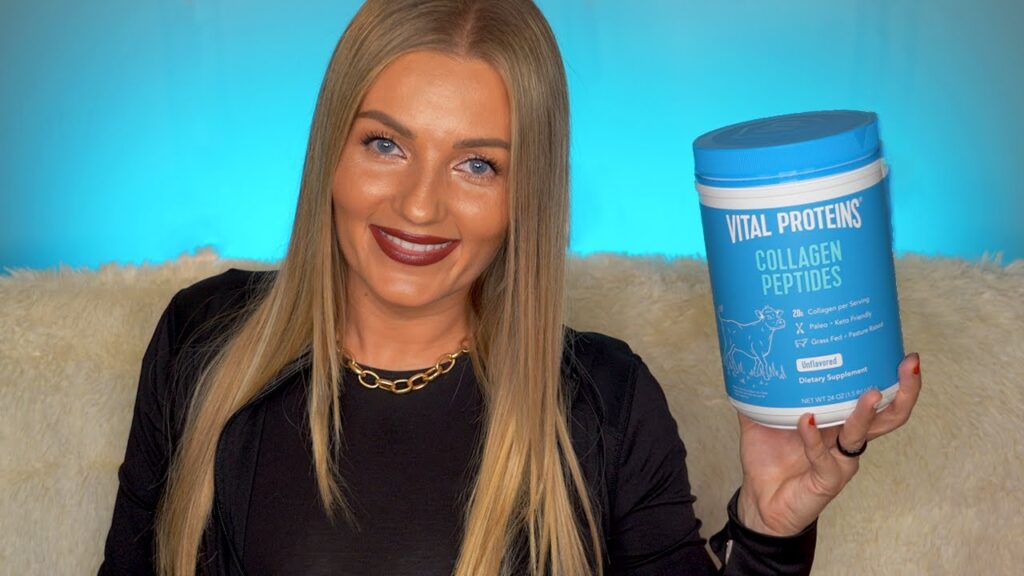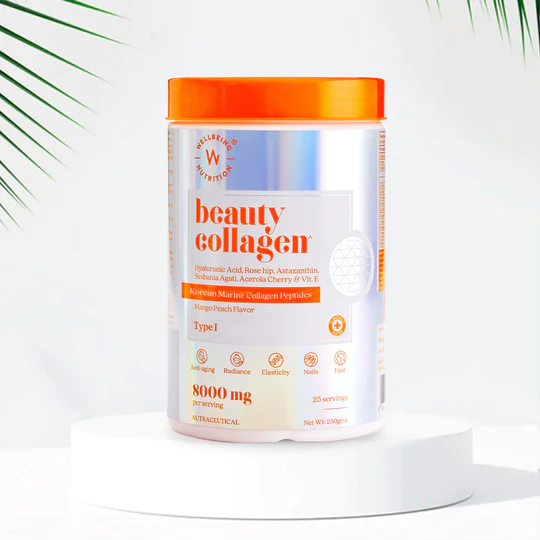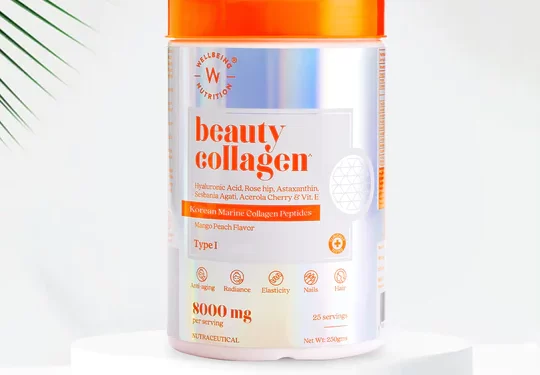- Author: GREAT MASTER VIKRANT ROHIN
- Date: MAY 3, 2023
Celebrities and the internet are selling collagen, and your pals may even be talking about how taking collagen has made their skin and hair seem younger.
But what exactly is collagen, and can it actually slow down the signs of aging and boost well-being?

WHAT IS COLLAGEN, AND WHAT ARE COLLAGEN SUPPLEMENTS?
A class of proteins is collagen. They give tissues like cartilage, skin, and tendons their shape and makeup around one-third of the protein in your body.
- The amino acids you get from food are used by the body to make collagen. After the age of 20, though, this skill starts to deteriorate.
- Collagen cannot be absorbed unless it’s broken down into smaller amino acids. So, collagen supplements are not actually collagen, but rather components of collagen that are already broken down into absorbable forms.
- Collagen supplements come in pill or powder form. The powder form will not turn into a gel when it hits the liquid, so it can be mixed with food or beverages.
IS COLLAGEN GOOD FOR YOU?
Although taking collagen supplements is unlikely to harm you, they also could not be of any use.
- Your body makes collagen and other proteins by combining various amino acids. Whether or not you take a collagen supplement, you must eat a healthy diet that includes all the amino acids for your body to do this. Taking collagen may give you extra amounts of some amino acids, but not all. Eating a variety of foods ensures that you have the nutrients you need to produce collagen and other proteins, without the trouble, expense and uncertainty of relying on a supplement.
- It’s also important to remember that taking collagen for a specific issue like improving your skin, relieving joint pain or maintaining muscle doesn’t work. We don’t get to decide how our body will use the amino acids in food or supplements. So, there is no reason to believe that taking a supplement works better than healthy eating.
WHAT FOODS CONTAIN COLLAGEN, AND WOULD CONSUME THEM RESULT IN THE ADVANTAGES TOUTED BY SUPPLEMENTS?
Any edible source of protein has the amino acids you need to build protein, including collagen. That includes animal- and plant-based protein. Collagen can be found in all animal muscle tissue (not organ tissue), bone broth, egg whites, and spirulina. These sources would provide the same benefits as collagen supplements.
But remember, in order to access amino acids and other nutrients in your food, your body breaks that food down. So, eating foods rich in collagen doesn’t give your body collagen. It just gives your body amino acids that it will reassemble into whatever protein it needs.
THE KEY IS EATING A BALANCED DIET THAT GIVES YOU A VARIETY OF AMINO ACIDS TO MEET THE BODY’S NEEDS. IT’S ALWAYS BEST TO GET YOUR NUTRIENTS THROUGH A HEALTHY, BALANCED DIET.

HOW CAN YOUR COLLAGEN BE INCREASED?
The majority of protein-rich dietary sources contain amino acids that can naturally increase the amount of collagen in your body. These include proteins derived from both plants and animals, such as:
- Beef,
- chicken,
- egg whites,
- bone broth
- Spirulina
- Poultry Nuts
- whole grains
- Beans
Some Lifestyle factors play a role in how much collagen you produce and how well collagen works in your body. Aside from eating a healthy diet that has plenty of protein, there are steps you can take to preserve collagen and improve your skin’s health. All of these healthy lifestyle choices have the added benefit of reducing your cancer risk:
- Maintain a healthy diet that is low in added sugar. Sugar actually reacts with the collagen in our skin to make skin stiffer and less elastic. A diet high in added sugar can also affect your weight and increase your cancer risk.
- Protect your skin against UV rays. Sun exposure damages your skin’s collagen and results in wrinkles and loss of elasticity that can make you look older. And of course, UV exposure raises your risk for skin cancer. (disputable)
- Don’t smoke. If you do smoke, stop. Smoking is hard on every part of your body, including your skin. Smoking also raises your risk for several types of cancer.
- Get plenty of rest. Sleep supports healthy skin. It also reduces stress and helps you make healthier food choices during the day.
Are collagen supplements harmful to one’s health?
Collagen supplements are generally made from connective tissue, bones, and other parts of cows, pigs, chicken,s and fish.
- They can contain toxins and heavy metals that could be harmful. As with all supplements, collagen is not regulated by the Food and Drug Administration. So, the purity of their active ingredient is not standardized.
- The Food and Drug Administration (FDA) and the majority of health departments worldwide do not regulate supplements, so there are no standards for how much collagen is safe to consume.
- The studies that have been done on the safety and effectiveness of collagen supplements are limited, and most have been funded by the supplement industry, creating concerns of bias.
- Collagen supplements provide anywhere between 2.5 to 15 grams of collagen, similar to what you can get by simply adding protein-rich foods to your diet. Keep in mind that excess protein can negatively affect your kidneys and cause other chronic problems.
- Some collagen products include shellfish or eggs. Your body may respond to the supplement if you are allergic to either of these foods. Studies have shown that using these oral supplements can cause people to have moderate side effects like nausea, diarrhoea, and upset stomach.
- What information about collagen supplements should cancer patients know? Although some studies suggest that collagen may be able to prevent metastasis, there is not enough data to support the use of supplements following a cancer diagnosis or during treatment. Before taking any supplement, patients should always talk to their doctor because some of them may conflict with their medications.

Anything else you want people to know about collagen supplements?
There is currently no clear-cut evidence to support the efficacy of collagen supplements. Despite being expensive, supplements do not ensure that you will have higher levels of collagen or better skin, hair, nails, bones, or joints.



